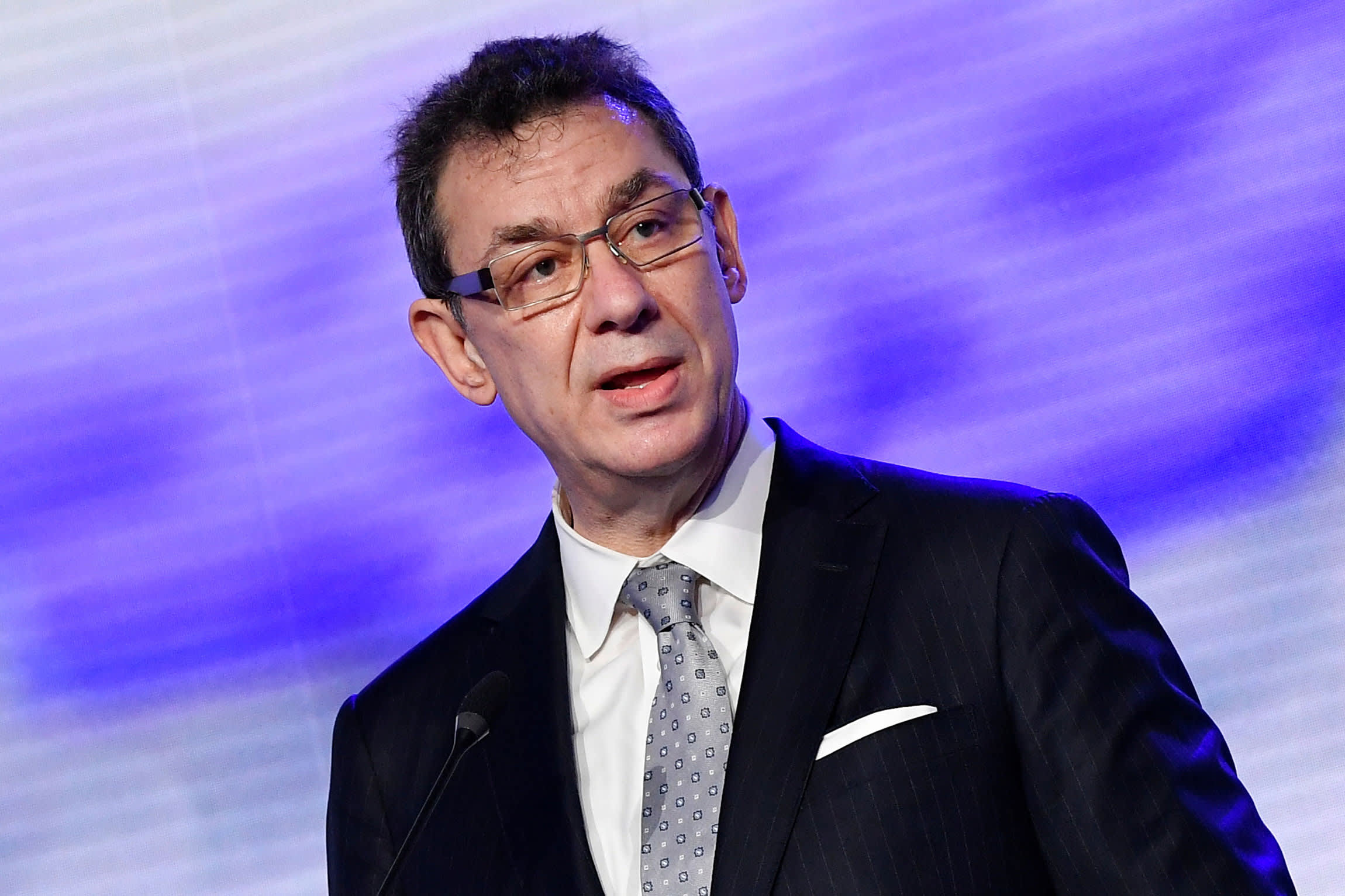Pfizer CEO Albert Bourla on Monday said a vaccine that targets the omicron variant of Covid will be ready in March, and the company's already begun manufacturing the doses.
"This vaccine will be ready in March," Bourla told CNBC's "Squawk Box." "We [are] already starting manufacturing some of these quantities at risk."
Bourla said the vaccine will also target the other variants that are circulating. He said it is still not clear whether or not an omicron vaccine is needed or how it would be used, but Pfizer will have some doses ready since some countries want it ready as soon as possible.
"The hope is that we will achieve something that will have way, way better protection particularly against infections, because the protection against the hospitalizations and the severe disease — it is reasonable right now, with the current vaccines as long as you are having let's say the third dose," Bourla said.
Real-world data from the United Kingdom has shown that Pfizer's and Moderna's vaccines are only about 10% effective at preventing symptomatic infection from omicron 20 weeks after the second dose, according to study from the U.K. Health Security Agency. However, the original two doses still provide good protection against severe illness, the study found.
Booster shots are up to 75% effective at preventing symptomatic infection, according to the study.
White House chief medical advisor Dr. Anthony Fauci said in December that there is no need for a booster shot that specifically targets omicron, because the current boosters work well against the variant.
Moderna CEO Stephane Bancel told CNBC earlier Monday the company is working on a booster for this fall that targets omicron and it will enter clinical trials soon. Bancel said demand is high from governments as they prepare regular vaccination against the virus.
Bourla said it's not clear whether a fourth dose is needed. He said Pfizer will conduct experiments to determine if another dose is necessary.
Israel has made a fourth dose of Pfizer and BioNTech's vaccine available to people over the age of 60, people with compromised immune systems and health-care workers.
Israel found that a fourth dose of the vaccine increases antibodies that protect against the virus fivefold a week after receiving the shot.

 www.cnbc.com
www.cnbc.com
"This vaccine will be ready in March," Bourla told CNBC's "Squawk Box." "We [are] already starting manufacturing some of these quantities at risk."
Bourla said the vaccine will also target the other variants that are circulating. He said it is still not clear whether or not an omicron vaccine is needed or how it would be used, but Pfizer will have some doses ready since some countries want it ready as soon as possible.
"The hope is that we will achieve something that will have way, way better protection particularly against infections, because the protection against the hospitalizations and the severe disease — it is reasonable right now, with the current vaccines as long as you are having let's say the third dose," Bourla said.
Real-world data from the United Kingdom has shown that Pfizer's and Moderna's vaccines are only about 10% effective at preventing symptomatic infection from omicron 20 weeks after the second dose, according to study from the U.K. Health Security Agency. However, the original two doses still provide good protection against severe illness, the study found.
Booster shots are up to 75% effective at preventing symptomatic infection, according to the study.
White House chief medical advisor Dr. Anthony Fauci said in December that there is no need for a booster shot that specifically targets omicron, because the current boosters work well against the variant.
Moderna CEO Stephane Bancel told CNBC earlier Monday the company is working on a booster for this fall that targets omicron and it will enter clinical trials soon. Bancel said demand is high from governments as they prepare regular vaccination against the virus.
Bourla said it's not clear whether a fourth dose is needed. He said Pfizer will conduct experiments to determine if another dose is necessary.
Israel has made a fourth dose of Pfizer and BioNTech's vaccine available to people over the age of 60, people with compromised immune systems and health-care workers.
Israel found that a fourth dose of the vaccine increases antibodies that protect against the virus fivefold a week after receiving the shot.

